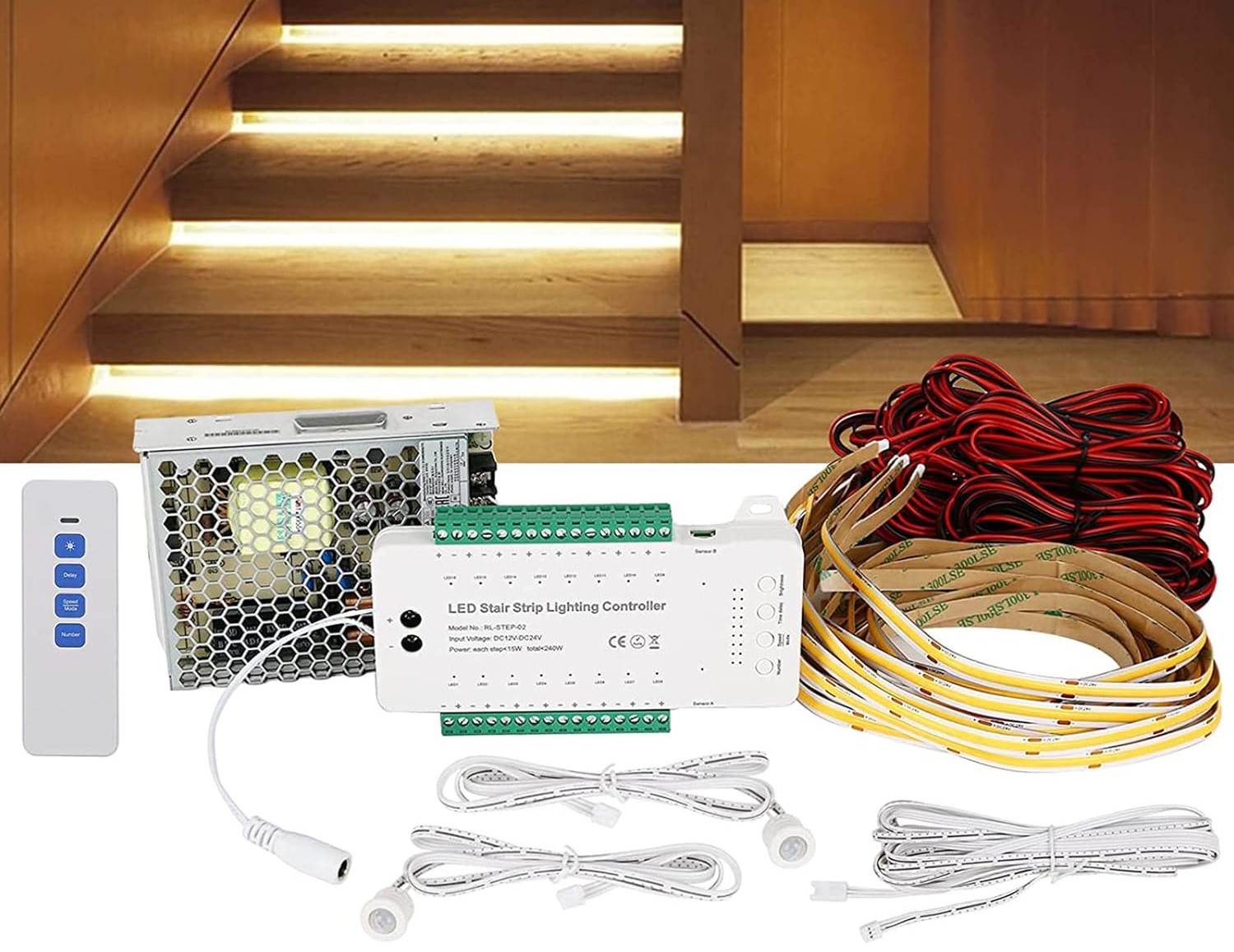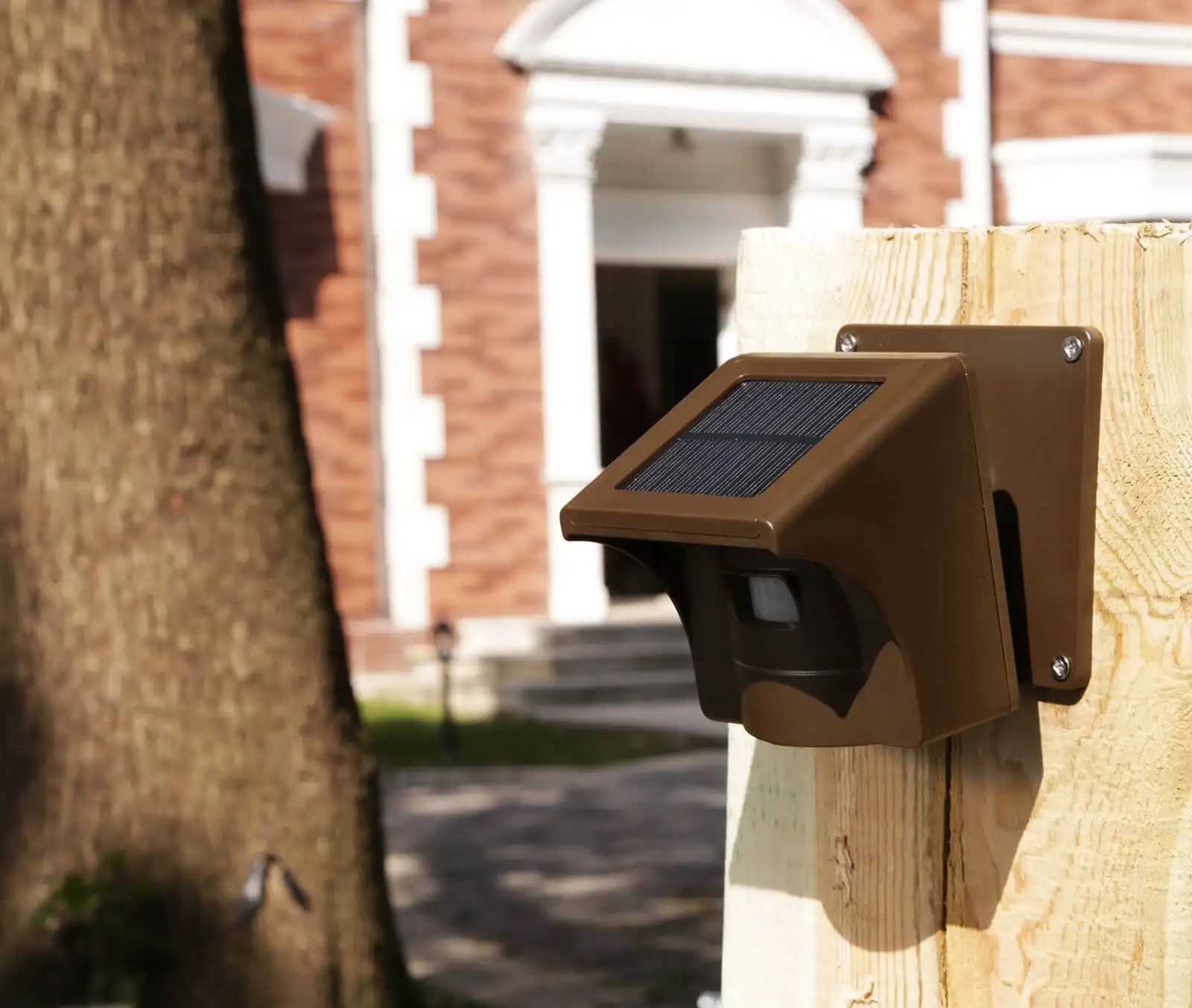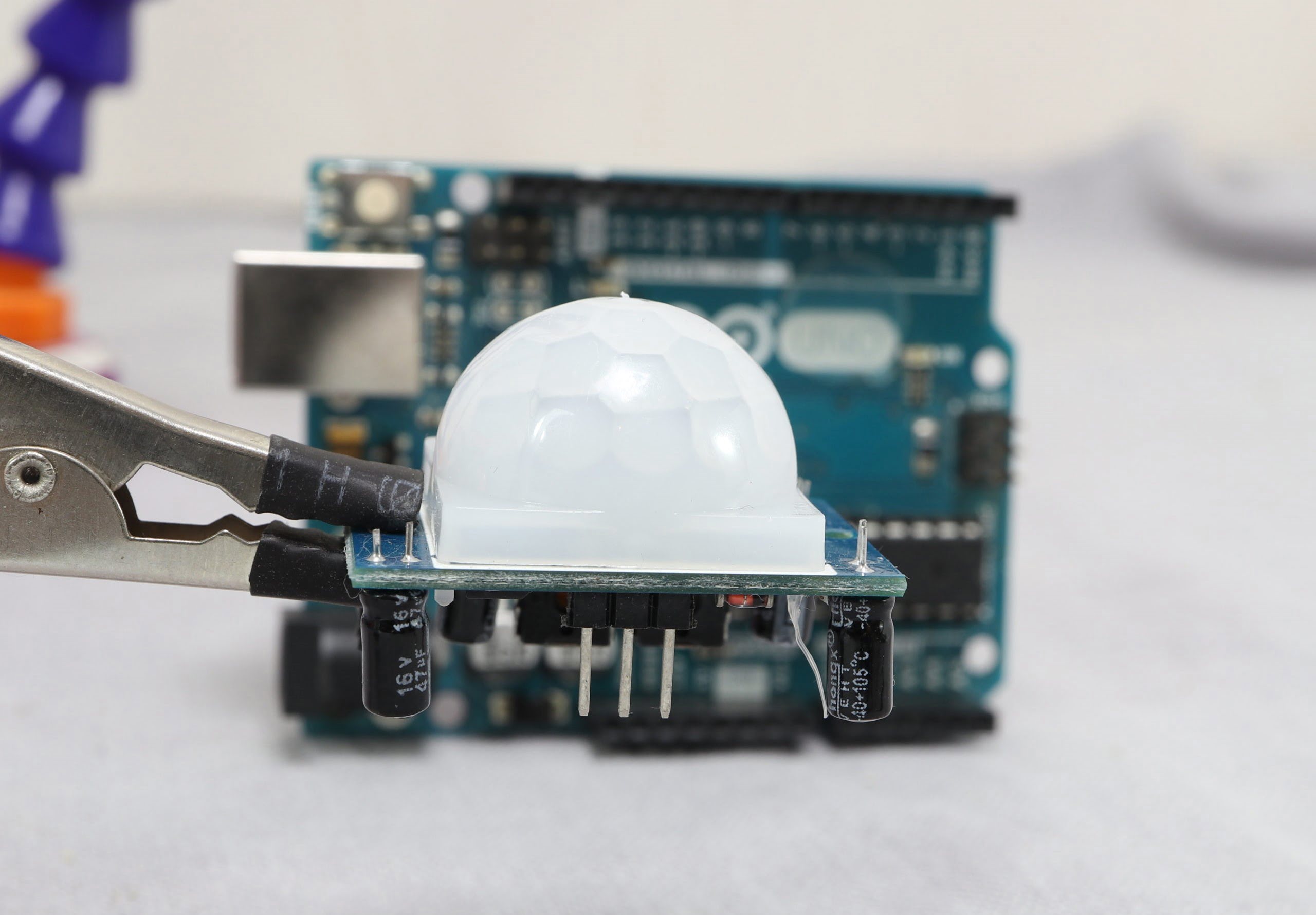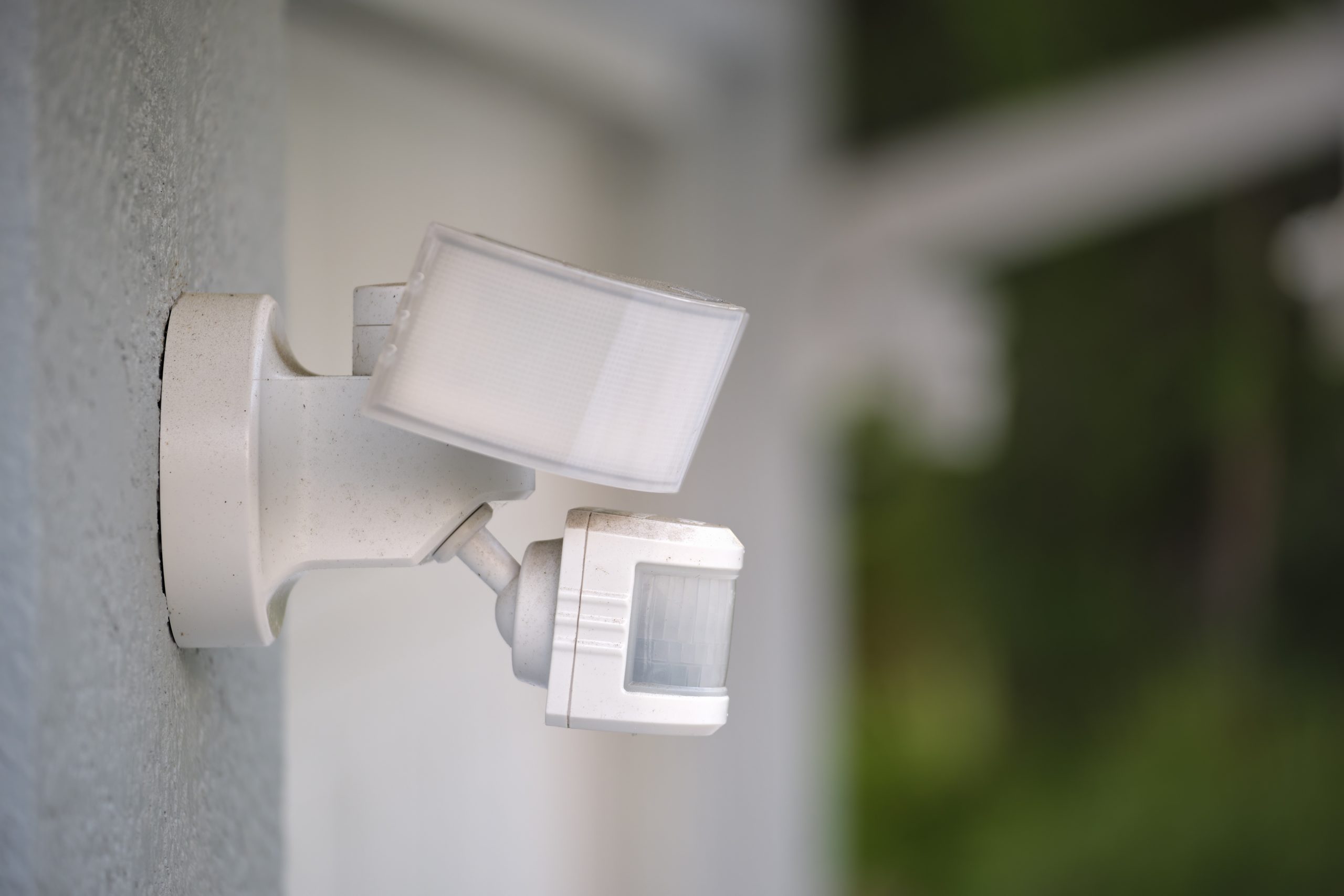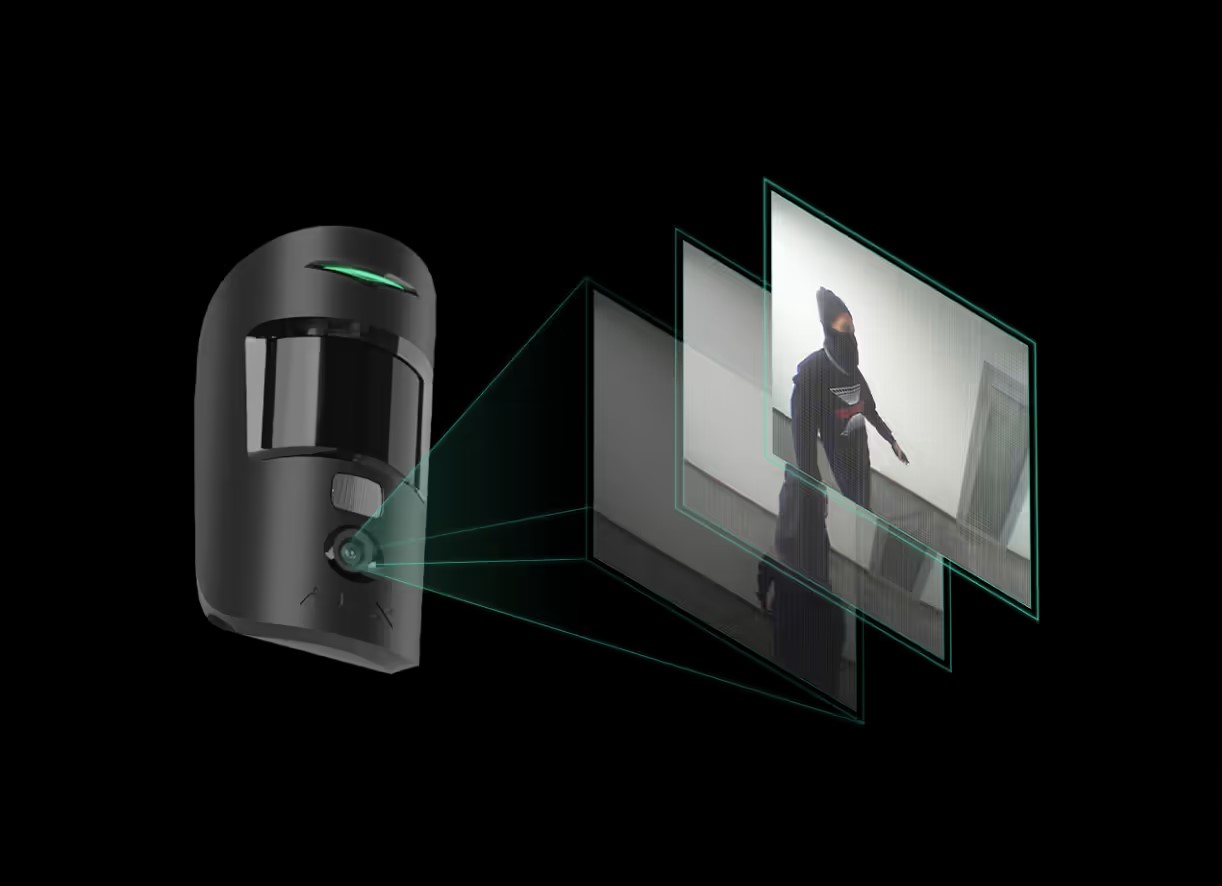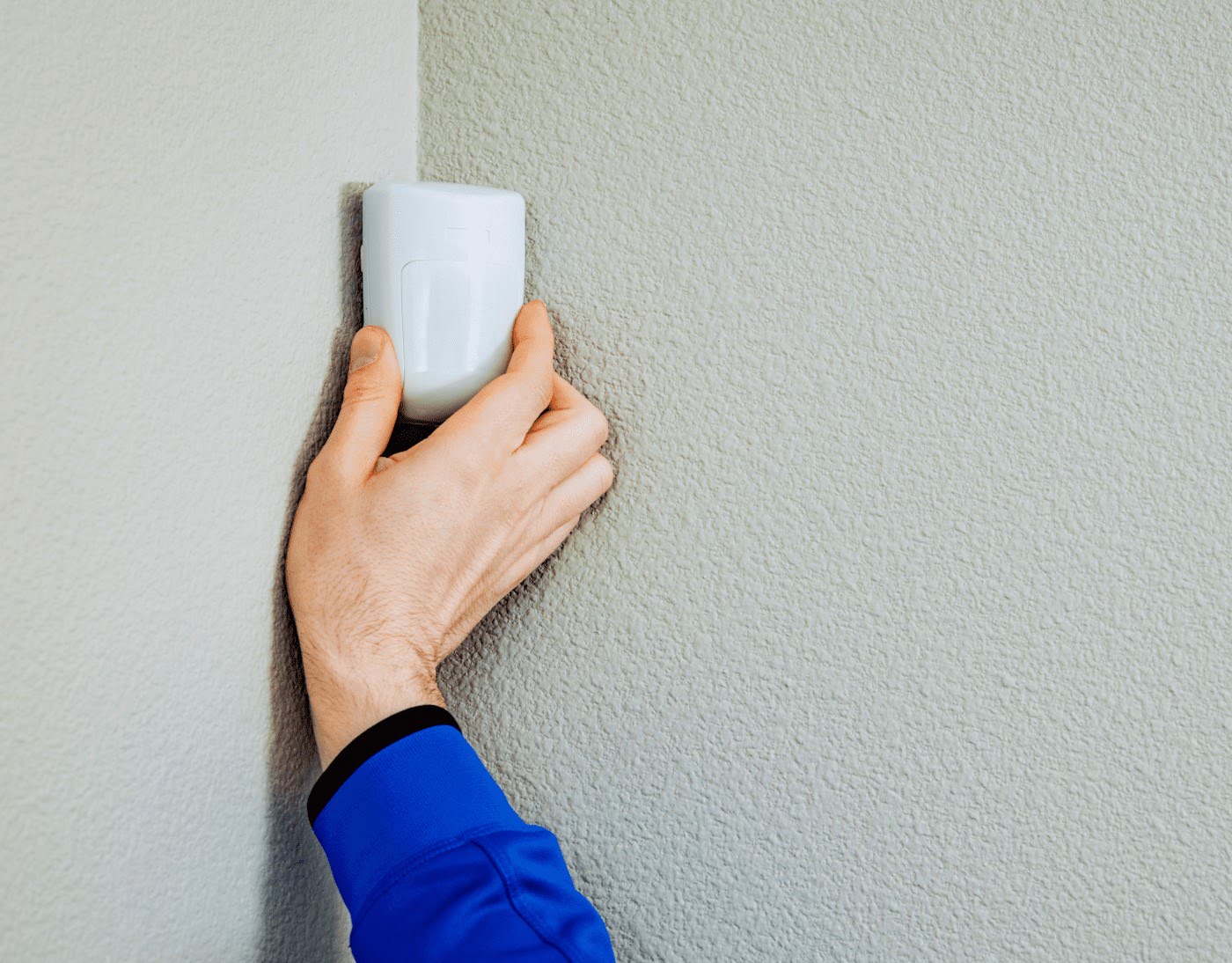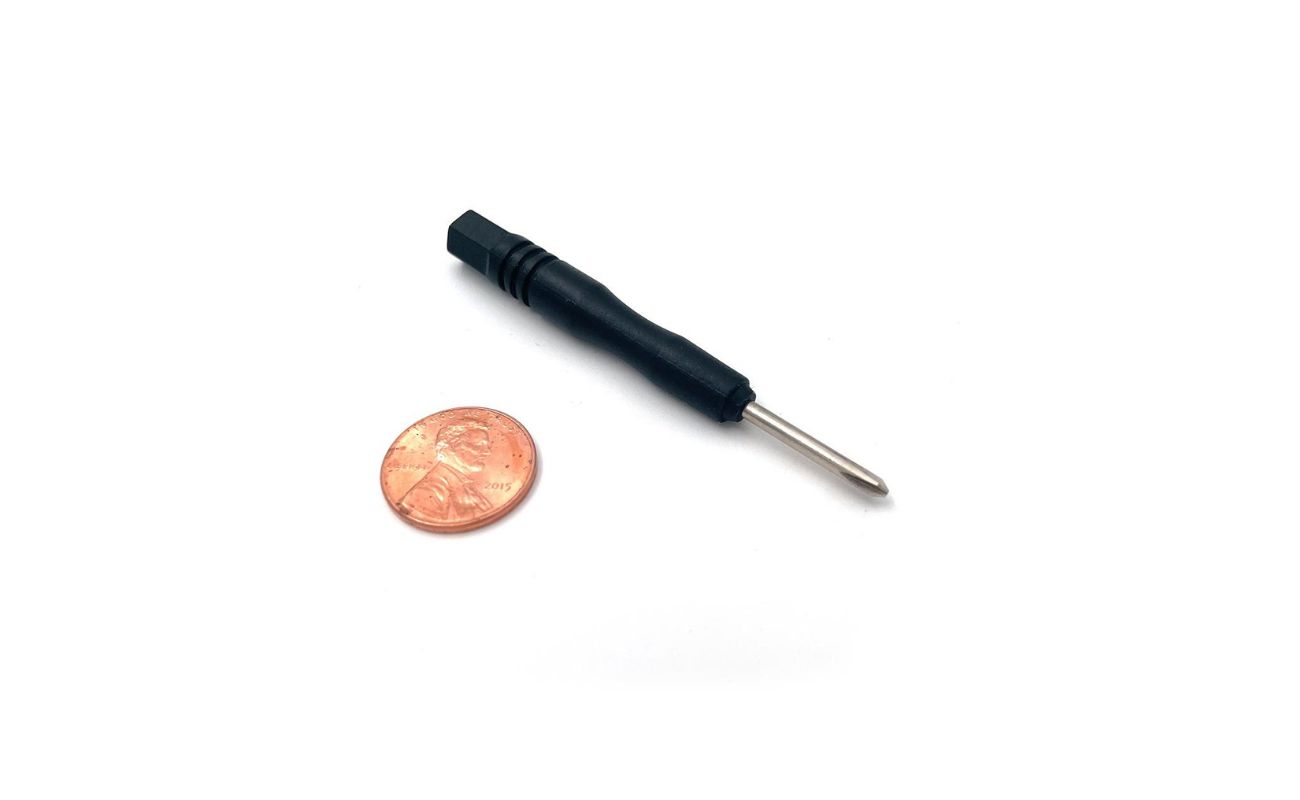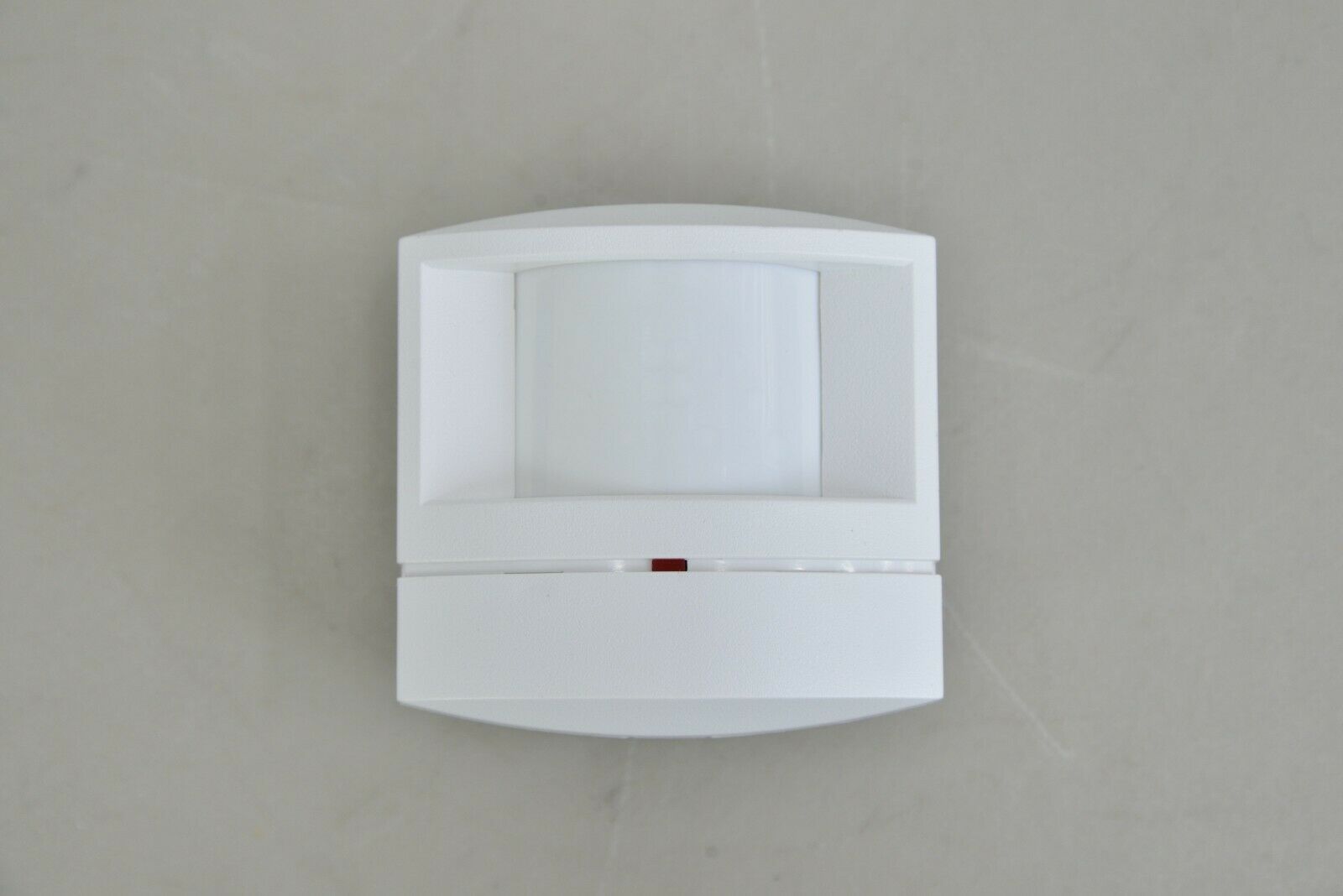Home>Home Security and Surveillance>What Happens If You Don’t Ground A Motion Detector Switch?
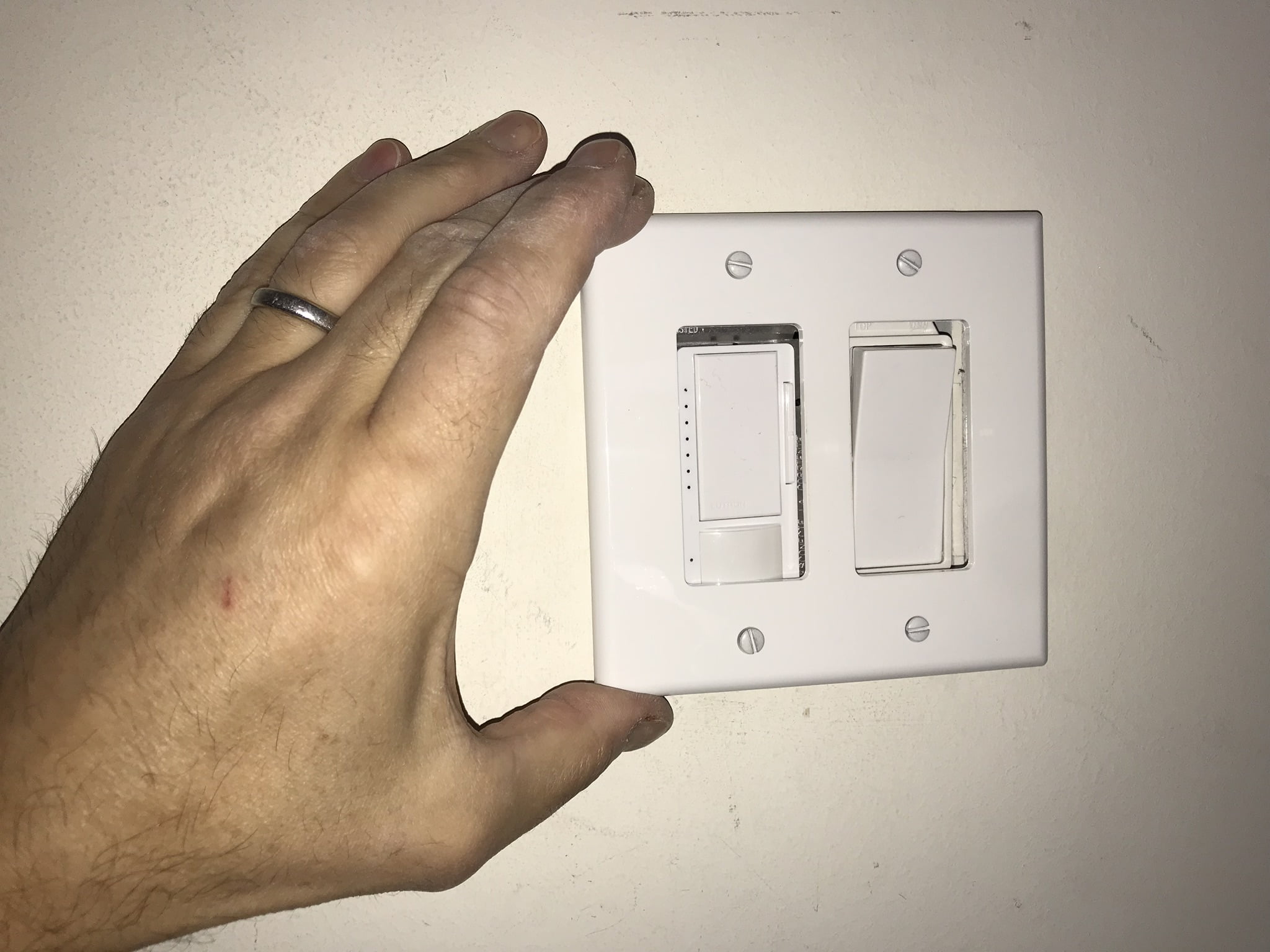

Home Security and Surveillance
What Happens If You Don’t Ground A Motion Detector Switch?
Modified: September 1, 2024
Ensure the safety of your home with proper grounding of motion detector switches. Learn what can happen if you neglect this crucial step in home security and surveillance.
(Many of the links in this article redirect to a specific reviewed product. Your purchase of these products through affiliate links helps to generate commission for Storables.com, at no extra cost. Learn more)
Introduction
Welcome to the world of home security and surveillance! In today’s technology-driven society, it has become increasingly important to protect our homes and loved ones from potential threats. One integral component of a comprehensive home security system is the motion detector switch. This device serves as a vigilant watchdog, alerting homeowners to any movement in their surroundings. However, it is crucial to understand the importance of properly grounding a motion detector switch to ensure its optimal performance and safety.
Before we delve into the significance of grounding, let’s take a moment to understand what a motion detector switch is and how it functions. Motion detector switches, also known as occupancy sensors, are electronic devices designed to detect the movement of objects within a specified area. Once activated by motion, they trigger an electrical circuit to turn on lights, alarm systems, or other connected devices. This technology provides a convenient way to automate lighting and enhance security in various settings, including homes, offices, and outdoor spaces.
Now, let’s explore the purpose of grounding in the context of motion detector switches. Grounding is a crucial safety measure in electrical systems that involves connecting a conductive path, typically a copper wire, between an electrical device and the earth. The primary purpose of grounding is to protect individuals and property from electrical shocks and fires.
When it comes to motion detector switches, proper grounding serves multiple important functions. Firstly, it provides a safe path for electrical faults, such as short circuits or overloads, to travel. By redirecting dangerous electrical currents away from sensitive components, grounding minimizes the risk of electrocution and electrical fires.
In addition to safety, grounding also helps prevent malfunctions and interference with other electronic devices. Electrical noise, such as radio frequency interference (RFI) and electromagnetic interference (EMI), can disrupt the smooth functioning of motion detector switches. Grounding acts as a shield, dissipating these unwanted electrical disturbances and ensuring reliable operation.
Furthermore, grounding a motion detector switch also maintains compliance with electrical codes and regulations. These codes, established by industry organizations and government bodies, are designed to ensure the safe installation and use of electrical systems. Neglecting proper grounding may result in code violations and potential legal consequences.
In the next sections, we will explore the potential consequences of not grounding a motion detector switch in more detail. Understanding these repercussions will highlight why grounding should never be overlooked in home security and surveillance systems. Join us as we unlock the secrets behind the importance of grounding and the hazards of neglecting this critical step!
Key Takeaways:
- Neglecting to ground a motion detector switch can lead to electrical hazards, malfunctioning switches, interference with other devices, and voiding of the manufacturer’s warranty, posing risks to safety and system reliability.
- Proper grounding is crucial for ensuring the safety and effectiveness of a home security system. It helps prevent electrical hazards, maintain reliable performance, and comply with electrical codes, enhancing overall security.
Read more: What Happens To Grass If You Dont Cut It
Understanding Motion Detector Switches
In order to fully appreciate the importance of grounding a motion detector switch, it is essential to have a clear understanding of how these devices operate.
At their core, motion detector switches are equipped with sensors that can detect physical movement in their vicinity. There are different types of motion sensors commonly used in these switches, including passive infrared (PIR), ultrasonic, and microwave sensors.
Passive infrared sensors work by detecting changes in infrared radiation levels. When an object moves within the sensor’s range, it emits a different level of heat than the background, triggering the sensor to activate the switch. Ultrasonic sensors, on the other hand, emit high-frequency sound waves and measure the time it takes for the waves to bounce back after hitting an object. Any disturbance in the pattern indicates movement and leads to the activation of the switch. Microwave sensors emit continuous microwave signals and measure the reflection of those signals off any moving object. If the reflection pattern changes, the sensor triggers the switch.
Regardless of the type of sensor used, motion detector switches have an internal circuit that responds to the detected movement. This circuit is connected to the electrical system of a property, allowing the switch to control the power supply to designated devices or fixtures, such as lights or alarms. When motion is detected, the switch activates the circuit, turning on the connected devices. Once the motion ceases, the switch deactivates the circuit, resulting in the devices turning off.
Motion detector switches come in various forms to accommodate different needs and settings. Some switches are designed for indoor use and can be installed in rooms, hallways, or stairwells to automatically turn on lights when someone enters the area. Outdoor motion detector switches are often used for security purposes, activating lights or cameras when motion is detected outside a building or in the yard.
Sophisticated motion detector switches can include additional features to enhance functionality and flexibility. These features can include adjustable detection range, sensitivity settings, and time delay options. Some advanced switches can even provide remote access and integrate with smart home automation systems, allowing users to control and monitor their security devices from anywhere using smartphones or voice commands.
Understanding how motion detector switches operate is essential for grasping the importance of proper grounding. With this knowledge in mind, we can now delve into the potential consequences of neglecting to ground these devices. Join us in the next section as we explore the potential electrical hazards associated with not grounding motion detector switches.
The Purpose of Grounding
Grounding plays a vital role in ensuring the safety and effectiveness of electrical systems, including motion detector switches. So, what exactly is the purpose of grounding, and why is it crucial in home security and surveillance?
The primary purpose of grounding is to provide a safe path for electrical currents to flow in the event of a fault or overload. It involves connecting the electrical circuit to the earth through a conductive pathway, typically a copper wire buried in the ground. This pathway allows excess current to travel harmlessly into the ground, preventing the buildup of dangerous electrical charges.
One of the key benefits of grounding is the prevention of electrical shocks. In the event of a short circuit or other electrical fault, grounding provides a pathway for the excess current to flow directly to the earth. This diversion of current helps protect individuals from accidental contact with live wires, reducing the risk of electric shock.
Grounding also aids in safeguarding against electrical fires. In a properly grounded system, any faults or electrical surges are directed into the earth rather than accumulating within the electrical components. By dissipating excessive currents, grounding helps prevent overheating and potential ignition sources, reducing the likelihood of electrical fires.
Additionally, grounding helps to minimize electrostatic discharge (ESD) risks. ESD is a sudden flow of electricity that occurs when two objects with different electrical charges come into contact. Without proper grounding, static charges can accumulate on surfaces and objects, leading to potentially damaging discharges. By providing a pathway for these charges to dissipate harmlessly into the ground, grounding helps protect sensitive electronic devices, including motion detector switches, from damage caused by ESD.
In the context of motion detector switches, grounding serves an important role in ensuring their optimal performance and reliability. Without proper grounding, the switches may be susceptible to electrical noise, such as radio frequency interference (RFI) and electromagnetic interference (EMI). These unwanted electrical disturbances can cause false activations or erratic behavior, compromising the overall functionality of the security system.
Furthermore, grounding assists in maintaining compliance with electrical codes and regulations. Electrical codes, established by industry organizations and government bodies, provide guidelines and standards to ensure the safe installation and operation of electrical systems. Neglecting proper grounding can result in code violations and potential legal consequences.
In summary, the purpose of grounding is to protect individuals and property from electrical hazards, prevent shocks and fires, minimize ESD risks, and ensure compliance with electrical codes. By properly grounding motion detector switches, we can enhance their safety, reliability, and longevity. In the next section, we will explore the potential consequences of not grounding a motion detector switch, shedding light on the potential hazards that can arise. Join us as we uncover the potential risks you may face without proper grounding!
Potential Consequences of Not Grounding a Motion Detector Switch
When it comes to electrical systems, neglecting proper grounding can have severe consequences. The same applies to motion detector switches, where failing to ground the device can lead to various potential risks and hazards. Let’s take a closer look at some of the potential consequences of not grounding a motion detector switch.
Electrical Hazards:
The primary concern of not grounding a motion detector switch is the increased risk of electrical hazards. Without a proper grounding system, the switch may not be able to safely redirect electrical faults, such as short circuits or overloads. This can result in a buildup of excessive electric current, increasing the chances of electrical fires and electric shocks. Not only does this put the safety of individuals and property at risk, but it also violates electrical safety codes and regulations.
Malfunctioning Switches:
Another potential consequence of not grounding a motion detector switch is its malfunction. Electrical noise, such as radio frequency interference (RFI) and electromagnetic interference (EMI), can disrupt the performance of the switch. Without proper grounding, these unwanted electrical disturbances may cause false activations, erratic behavior, or even complete failure of the switch. This can compromise the effectiveness of the home security system, leading to potential vulnerabilities and unreliable detection of motion.
Interference with Other Devices:
In addition to malfunctioning switches, neglecting grounding can result in interference with other electronic devices. Electrical noise generated by the switch, especially if it is not properly grounded, can disrupt the operation of nearby devices. This can cause issues such as distorted audio signals, flickering lights, or errors in communication systems. Proper grounding helps to dissipate these electrical disturbances, minimizing the risk of interference and ensuring the smooth operation of all devices in the vicinity.
Voiding Manufacturer’s Warranty:
Many manufacturers of motion detector switches require proper grounding as a condition for their warranty. Failing to ground the switch may void the manufacturer’s warranty, leaving you without any protection or support in case of malfunction or damage. It is important to read and follow the manufacturer’s guidelines to ensure compliance and maintain the validity of the warranty, providing peace of mind and potential cost savings in the long run.
By understanding the potential consequences of not grounding a motion detector switch, it becomes evident that proper grounding is not something to be overlooked. It is a critical step in ensuring the safety, reliability, and longevity of the switch and the overall home security system. In the next section, we will explore in more detail the specific electrical hazards that can arise from neglecting to ground a motion detector switch. Join us as we uncover the potential dangers you may face without proper grounding!
Electrical Hazards
When it comes to electrical systems, safety should always be a top priority. Neglecting to properly ground a motion detector switch can lead to a myriad of potential electrical hazards. Let’s delve into these hazards in more detail to better understand the risks associated with not grounding the switch.
Read more: How Do Motion Detector Light Switches Work
Risk of Electric Shocks:
One of the most significant dangers of not grounding a motion detector switch is the increased risk of electric shocks. Without proper grounding, the switch may not be able to effectively redirect electrical faults or excess current. This means that if there is a short circuit or an overload, the current can flow through unintended paths. If someone comes into contact with these live wires or conducts electricity, they may experience a severe electric shock. Electric shocks can lead to injuries or even be fatal in extreme cases, making proper grounding essential for personal safety.
Potential for Electrical Fires:
Another critical electrical hazard that arises from not grounding a motion detector switch is the increased risk of electrical fires. When faults or excess currents are not properly redirected, they can lead to overheating of electrical components. Over time, this heat buildup can result in the ignition of flammable materials, potentially causing a fire. Without a proper grounding system in place, the risk of electrical fires significantly increases, posing a threat to individuals and property. It is important to note that electrical fires can spread rapidly and cause extensive damage if not promptly extinguished.
Code Violations and Legal Consequences:
Electrical safety codes and regulations are put in place to ensure the safe installation and use of electrical systems. Neglecting proper grounding of a motion detector switch can result in a violation of these codes, which can lead to legal consequences. Electrical inspections may uncover the absence of grounding or improper grounding practices, and this can result in fines, penalties, or even forced removal or shutdown of the switch. It is crucial to adhere to the electrical codes to maintain a safe and compliant home security system.
Risks to Sensitive Electronic Devices:
Proper grounding is not only essential for the safety of individuals but also for protecting sensitive electronic devices. In the absence of grounding, electrical noise such as radio frequency interference (RFI) and electromagnetic interference (EMI) can disrupt the proper functioning of nearby devices. Motion detector switches generate these types of electrical disturbances, especially if they are not properly grounded. This interference can affect the performance of other electronic devices in the vicinity, leading to malfunctions, communication errors, or even permanent damage.
The potential electrical hazards associated with not grounding a motion detector switch can have severe consequences. From the risk of electric shocks and electrical fires to violating electrical codes and compromising the safety of other electronic devices, neglecting proper grounding is not worth the potential risks. It is essential to ensure that your motion detector switch is correctly grounded to mitigate these hazards and maintain a safe and reliable home security system. In the next section, we will explore the specific issues of malfunctioning switches that can arise from not grounding the device. Join us as we uncover the potential risks and drawbacks of a motion detector switch that fails to be grounded!
Malfunctioning Switches
One of the potential consequences of not grounding a motion detector switch is the increased risk of the switch malfunctioning. Without proper grounding, the switch may experience various issues that can compromise its performance and reliability.
False Activations:
Proper grounding helps to shield motion detector switches from unwanted electrical noise such as radio frequency interference (RFI) and electromagnetic interference (EMI). Without this shielding effect, the switch may be susceptible to false activations. Electrical noise from nearby electronic devices, power lines, or even lightning can trigger the switch, causing it to turn on lights or devices unnecessarily. False activations can be inconvenient, and they may also diminish the overall effectiveness of the security system by desensitizing occupants to genuine alerts.
Erratic Behavior:
Not grounding a motion detector switch can lead to erratic behavior. Electrical noise can disrupt the internal circuitry of the switch, causing it to malfunction or behave unpredictably. This can result in irregular switching on and off, inconsistent detection of motion, or even a complete failure of the switch. Erratic behavior can compromise the reliability of the home security system, leaving potential blind spots or vulnerabilities in detecting and responding to intrusions.
Diminished Sensitivity:
Proper grounding helps ensure the consistent and reliable operation of motion detector switches. Without grounding, the sensitivity of the switch may be compromised. A poorly grounded switch might become less responsive to detecting motion, requiring more significant movement or closer proximity to activate. Diminished sensitivity can reduce the overall effectiveness of the security system as it may fail to detect subtle movements or provide timely notifications of potential threats.
Read more: What Is The Best Motion Detector
Limited Performance:
A motion detector switch that is not properly grounded may experience limitations in its performance. Electrical noise can interfere with the switch’s ability to accurately detect motion, resulting in missed detections or delayed responses. This can be particularly problematic in critical situations where immediate activation of lighting or alarms is crucial. A motion detector switch that is unable to perform at its full potential due to improper grounding may leave you with a compromised level of security.
It is important to note that insufficient or improper grounding may also lead to premature wear and tear on the switch, further increasing the risk of malfunction. Over time, the electrical noise and erratic behavior associated with improper grounding can result in the deterioration of internal components, reducing the overall lifespan of the switch.
Proper grounding is key to maintaining the optimal performance and reliability of a motion detector switch. By ensuring that the electrical noise is properly dissipated, you can minimize the risk of false activations, erratic behavior, diminished sensitivity, and limited performance. Join us in the next section as we explore the potential interference issues that can arise from not grounding a motion detector switch, and the impact it can have on other electronic devices. Stick around to learn more about the drawbacks of neglecting proper grounding!
Interference with Other Devices
One of the potential consequences of not properly grounding a motion detector switch is the interference it can cause with other electronic devices. Electrical noise generated by the switch, if not adequately dissipated through grounding, can disrupt the operation of nearby devices, leading to various issues.
Radio Frequency Interference (RFI):
Improper grounding can result in the generation of radio frequency interference (RFI), which can interfere with the performance of nearby electronic devices. RFI is unwanted electrical noise that can disrupt the normal operation of radios, televisions, wireless communication systems, and other sensitive electronic devices. This interference can manifest as static, distortion, signal dropouts, or poor reception. It can be particularly problematic in environments where clear and reliable communication is essential, such as home theater systems or wireless security camera setups.
Electromagnetic Interference (EMI):
Another type of electrical noise that can result from improper grounding is electromagnetic interference (EMI). EMI can affect the normal functioning of electronic devices by disrupting or distorting their electrical signals. This interference can cause devices to malfunction, display abnormal behavior, or experience reduced performance. Examples of devices that can be affected by EMI include computer equipment, audio systems, and sensitive measurement instruments. In a home security and surveillance system, EMI interference can lead to unreliable operation of connected cameras, alarms, or communication devices.
Read more: What Is A Vernier Motion Detector
Flickering Lights:
Inadequate grounding of a motion detector switch can also manifest as flickering lights in the vicinity. The electrical noise generated by the switch can cause fluctuations in the power supply, resulting in lights flickering or dimming intermittently. This can be not only annoying but also disruptive to daily activities. Flickering lights can be a sign of an unstable electrical system, and it is important to address the root cause, which may be related to the improper grounding of the motion detector switch.
Communication Errors:
Electrical noise from a motion detector switch without proper grounding can interfere with communication signals. This interference can lead to errors or interruptions in data transmission between devices. For example, in a home security system, communication errors can cause delays or failures in transmitting alerts or notifications to monitoring stations or personal devices. This can compromise the effectiveness of the system in providing timely information about potential security breaches.
Proper grounding is essential in minimizing and preventing interference with other electronic devices. By ensuring that the electrical noise generated by the motion detector switch is properly dissipated, you can avoid negative impacts on the performance and reliability of nearby devices. Adequate grounding helps to maintain a stable and interference-free environment for all connected electronics, reducing the risk of communication errors, flickering lights, and disruption to essential systems.
Now that we have explored the potential interference issues that can arise from neglecting grounding in a motion detector switch, let’s move on to discuss how not grounding the switch can affect its warranty and the importance of complying with electrical codes. Join us in the next section to learn more about these important aspects!
Voiding Manufacturer’s Warranty
When it comes to electronic devices like motion detector switches, manufacturers often provide warranties to offer protection and peace of mind to consumers. However, neglecting to properly ground a motion detector switch can potentially void its manufacturer’s warranty, leaving you without any coverage or support in case of malfunction or damage.
Non-Compliance with Manufacturer’s Guidelines:
Manufacturers typically provide specific guidelines and instructions for the installation and use of their motion detector switches. These guidelines often include recommendations for proper grounding to ensure the safe and reliable operation of the device. Failure to follow these guidelines, including neglecting to ground the switch, may be considered a breach of the warranty terms and conditions, thereby voiding any coverage provided by the manufacturer.
Violation of Warranty Terms:
Most warranties for electronic devices, including motion detector switches, will have specific terms and conditions that outline what is covered and what is not. Neglecting to properly ground the switch may be considered a violation of these terms, as it is a critical component of the proper installation and functioning of the device. Consequently, the manufacturer may choose to declare the warranty void due to the failure to meet the recommended grounding requirements.
Limited Liability:
By voiding the manufacturer’s warranty, you are effectively relinquishing any rights to claim repairs, replacements, or refunds from the manufacturer. This means that if your motion detector switch malfunctions or gets damaged, you will be solely responsible for the costs of repairs or replacements. Without the manufacturer’s support, you may face additional expenses and inconvenience in resolving issues with the switch.
Loss of Technical Support:
When a motion detector switch is properly grounded, it is typically covered by technical support provided by the manufacturer. This support can include troubleshooting assistance and guidance regarding the installation, configuration, and operation of the switch. However, if the switch is not grounded as recommended, the manufacturer may refuse to provide technical support, leaving you without the necessary expertise to address any issues that may arise.
It is important to carefully read and understand the warranty terms and conditions provided by the manufacturer of your motion detector switch. Pay close attention to any requirements or recommendations regarding proper grounding. By following the manufacturer’s guidelines and ensuring that the switch is correctly grounded, you can maintain the validity of the warranty and have the peace of mind knowing that you are covered in case of any unforeseen issues.
In summary, failure to properly ground a motion detector switch can lead to the voiding of the manufacturer’s warranty. This can result in limited liability, loss of technical support, and the potential financial burden of repairs or replacements. It is crucial to comply with the manufacturer’s guidelines regarding grounding to maintain the validity of the warranty and ensure that you have the necessary support and coverage for your motion detector switch.
As we conclude our exploration of the consequences of neglecting proper grounding, we hope you now understand the criticality of this step in ensuring the safety, reliability, and longevity of a motion detector switch. In the next section, we will recap the key points discussed in this article and provide a concluding statement. Stick with us as we wrap up our journey through the crucial role of proper grounding in home security and surveillance systems!
Conclusion
Proper grounding is a critical step in ensuring the safety, functionality, and longevity of a motion detector switch in a home security and surveillance system. Neglecting to ground a motion detector switch can have severe consequences, including potential electrical hazards, malfunctioning switches, interference with other devices, and the voiding of the manufacturer’s warranty.
Grounding serves multiple important purposes in electrical systems. It provides a safe path for electrical faults, such as short circuits, to travel, reducing the risk of electric shocks and electrical fires. Additionally, grounding helps prevent malfunctions and interference with other electronic devices, ensuring reliable operation and avoiding disruptions in communication systems.
Not grounding a motion detector switch can result in numerous risks and drawbacks. Electrical hazards, such as electric shocks and fires, pose a significant danger to individuals and property. Malfunctioning switches can lead to false activations, erratic behavior, and diminished sensitivity, compromising the overall effectiveness of the home security system. Interference with other devices can disrupt their operation and impact communication systems. Additionally, neglecting proper grounding can void the manufacturer’s warranty, leaving you without coverage and support in case of any issues.
To avoid these potential consequences, it is crucial to comply with electrical codes and adhere to the manufacturer’s guidelines for proper grounding. Ensure that the motion detector switch is correctly grounded to minimize the risk of electrical hazards, maintain reliable performance, and preserve the validity of the warranty.
Investing in a comprehensive home security and surveillance system is a priority for many homeowners. By understanding the importance of proper grounding in motion detector switches, you are taking a proactive step towards enhancing the safety and effectiveness of your security system. Remember, grounding is not just a technical requirement; it is an essential aspect of maintaining a secure and reliable environment for you and your loved ones.
In conclusion, don’t overlook the significance of grounding a motion detector switch in your home security and surveillance system. Proper grounding ensures the safety of your electrical system, prevents malfunctions, minimizes interference, and maintains compliance with electrical codes. Take the necessary steps to ensure that your motion detector switch is correctly grounded, and enjoy the peace of mind that comes from a secure and reliable home security system.
Frequently Asked Questions about What Happens If You Don't Ground A Motion Detector Switch?
Was this page helpful?
At Storables.com, we guarantee accurate and reliable information. Our content, validated by Expert Board Contributors, is crafted following stringent Editorial Policies. We're committed to providing you with well-researched, expert-backed insights for all your informational needs.
